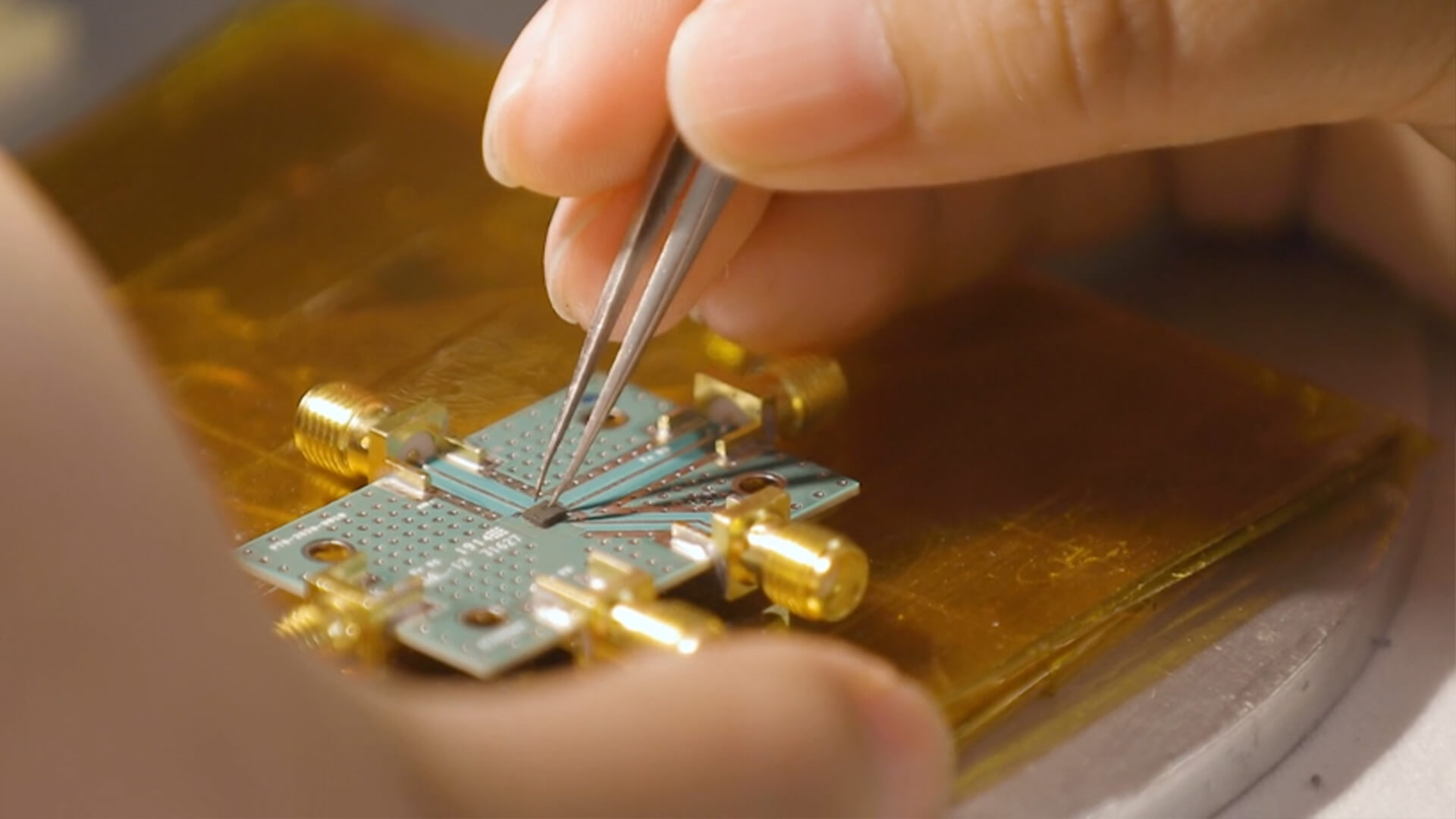
Resonant is changing the way that radio frequency (RF) filters are designed and, in the process, has disrupted and transformed the market and supply chain for RF front-ends (RFFE). The company has used these tools to develop XBAR, a new resonator technology that is equally revolutionary because it is the technology foundation needed to develop higher frequency 5G filters that utilize the cost-effective manufacturing techniques of today’s SAW filters. Discover why the firm has won the title of Most Innovative RF Filter Design Company 2020 – California
What exactly are RF filters? And why are they important? Radio frequencies occupy the range of electromagnetic spectrum designated for broadcasting over distance. Billions upon billions of mobile devices send and receive signals using chunks of RF spectrum, known as bands. Filters select specific signals from specific bands, whilst rejecting unwanted signals that would otherwise interfere with the selected bands. In a modern smartphone, there are currently more than fifty such RF filters, allowing operation anywhere in the world. As the number of filters increases, so too does the design challenge, both in the number of new filters and the complexity of those designs., all of which must work together seamlessly.
Currently, there are seven major players responsible for providing 98% of the RF filter production for mobile phones. These companies design, fabricate, and package the filters. However, the limited number of filter suppliers constrain the growth of the mobile phone market. With the impending transition to 5G networks and technology looming large on the horizon, the capacity to generate new designs and more RF filters than ever before will no doubt inhibit the success of the mobile phone industry and market. That is where Resonant comes into the picture.
The genesis for Resonant started in the early days of the cellular industry, when existing filter systems for cellular base stations took up an entire seven-foot high telecom rack. The company’s founders developed the design tools and manufacturing techniques to perfect a new kind of filter system that was roughly the size of a loaf of bread, whilst also doubling the area covered by the cell tower. In 2012, those engineers founded Resonant to apply their development expertise to filters in smartphones, which were growing in design complexity and in cost.
Resonant’s core values are transparency, accountability, and a sense of urgency. Transparency is about the firm being upfront and visible about the actions is takes, whilst the accountability focus is very much on being clear about Resonant’s vision for where it is going and what needs to be accomplished along the way. Finally, the sense of urgency lies in creating an atmosphere of urgency that can be embraced, and in turn bring about an atmosphere of achievement. The company was incorporated also in 2012, giving it the ability to develop new tools and technology to better design the filters. Resonant’s founders were also able to raise bridge financing from their investment banker, and this paved the way for success which they may never have considered before.
Resonant went public on Nasdaq in 2014, which in turn enabled it to create the first of many ground-breaking filters. Each one of these new innovations lent credence to Resonant as a company, and gave the company credibility, showing the industry that its technology could help to meet the challenges with design complexity that the industry faces today. RF filter design is a deeply complex combination of physics and electronics, but it is a combination that is done by most manufacturers using internal tools.
However, invariably, the results depend on trial and error to support the right frequency band. This means that the process is often a very long and arduous one which does not suit the speed at which new mobile devices are being released every year. A filter must be designed, fabricated, and tested, as well as tweaked which means conducting the whole process all over again.
With the entire process taking upwards of months, or even years, this is too long given the wealth of new and advanced RF filters – which are the most complicated ones to develop – are needed in mass quantities for modern 5G mobile devices. This is where Resonant delivers outstanding results. The firm’s Infinite Synthesized Networks (ISN®) addresses this problematic design process by providing the ability to design and simulate the filter electronically hundreds of times within a single second. Therefore, once the filter has been fabricated and tested only once or twice, ISN can ensure that it is ready for manufacturing.
Saving a huge amount of design time, ISN also allows Resonant to create RF filter designs for difficult bands, modules, and other complex RFFE requirements that have the potential to be manufactured with excellent predictability, enabling achievement of the desire product performance in fewer turns through the foundry, compared to traditional approaches. This increase in complexity will no doubt be further accelerated by the transition to 5G mobile services. In exploring the use of ISN for 5G networks, Resonant developed a brand new resonating structure, called XBAR®. XBAR technology is ideal for emerging 5G mobile devices that operate at higher frequencies in order to deliver higher bandwidths. Unlike other filter developments that push into higher frequencies, XBAR filters can be manufactured using existing fabrication processes for fast production.
Many of Resonant’s customers include RF filter companies that need a new way to design their products. Already, Resonant is working with some of the industry’s largest RF filter manufacturers to make their design processes even more efficient. Taking those extra months and years off the design, fabrication, and testing process can be supremely helpful for manufacturers as it allows them to make more and focus more on innovation. Another market for Resonant is mobile device component companies that would like to move into the RF filter market. The ISN Foundry Program is an ecosystem of RF filter manufacturing firms that are certified by Resonant on different manufacturing processes. Using ISN for design and the ISN Foundry Program, Resonant offers a turnkey capability to allow these companies to enter the RF filter market.
Resonant also believes that the only way the benefits of 5G networks become reality, is with more RF filter innovation. Resonant’s vision of the future is to enable RF innovation through the best software and the broadest IP library so that RF designers can do what they couldn’t do before. The firm has long believed that the future of the RF filter industry is tools, technology, and teamwork. Resonant will no doubt continue its push to become the leader of this paradigm shift.
5G wireless services are poised to make a significant impact for mobile device users and new IoT applications. For this to happen, however, all components and all parts of the mobile device must work seamlessly in tandem to ensure that they deliver on that potential. Without the exceptional work of Resonant, with its outstanding RF filter manufacturing tools and techniques, this future would take much longer to be realized. Higher frequency RF filters are needed to achieve the full benefit of next generation mobile devices and that takes new thinking and technology. With all the great software, cameras and other benefits of today’s phones, it’s easy to forget that without RF filters, user satisfaction would plummet. Thanks to Resonant’s ISN and XBAR technologies, 5G networks will be able to deliver all that they promise.





















